- Back to Home »
- Bush paints, but is he any good?
- Art experts offer their opinions of the paintings of former President George W. Bush
- Mat Gleason: Strengths, but they seem hastily done. Brian Tolle: Bush not yet a painter
- Catherine Anspon: They show warmth; Evan Pricco: He lacks technical chops
- Brian Goslow: Their value is in celebrity; Paddy Johnson: His vision doesn't inspire
Editor's note: Former President George W. Bush took up painting after he left office, eventually hiring a teacher to help him develop at his hobby. He told her: "There's a Rembrandt trapped in this body. Your job is to find it," he recounted to Jay Leno on "The Tonight Show" on Tuesday, where he discussed his new avocation. But has he found his inner Rembrandt yet? CNN's Opinion section asked artists, critics and art editors how the former president's paintings stack up as art.
(CNN) -- Mat Gleason is art critic for Coagula Art Journa l, a Los Angeles-based Web 'zine for art criticism.
George W. Bush paints like a beginning college art major. His draftsmanship is his weakest spot -- he is earnest but inexperienced, still trying to find a realistic form but too impatient to get to the fun part of making art to really sketch out and detail the thing he is trying to represent.
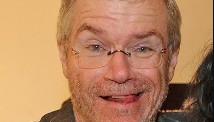
His greatest strength is his cropping and composition. He is not afraid of putting the subject of his art on the far side of a picture. If he puts something in the center, he is comfortable zooming in on it. He intuitively understands the psychology of a painting giving power to its subject by forcing the viewer to fill in the space of a picture outside of what is depicted.
His color palette is conservative, as he aims for a realism but once again, like his rendering, he is too impatient to get the painting going to blend and layer chroma, preferring to use color more as illustration than as mood.
The haste at which these pictures appear to have been completed reveal an artist who wants to finish what he starts, pleased with delivering something good and pleasant instead of great and overwhelming. This is the kind of artist who will never make a masterpiece but will remain a favorite with his core audience.
--------------
Brian Tolle is an artist and educator who is best known for the Irish Hunger Memorial, a half-acre sculpture in Lower Manhattan. He is represented by CRG Gallery, New York, where he had his most recent solo exhibition , Commander in Chief.
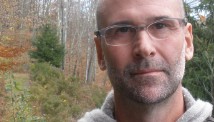
Ulysses S. Grant, Dwight D. Eisenhower and Jimmy Carter all took up painting at some point in their lives, and they have now been joined by George W. Bush. There is a strange relationship between power and art. Adolf Hitler began academic life learning to paint and Sir Winston Churchill painted until he died. Arch rivals in politics and war, yet they shared the same creative outlet. Few activities are more mysterious than the making of art, especially today when questions like "What's your medium?" make many of us professionals cringe. It is the "imaginary value" of art that gives it power and satisfies the ego of those who truly possess it.
I am sympathetic toward the former presidents. My own first academic degree was in political science and I served a full-time internship with the New York State Legislature. The work was stressful and unfulfilling to me. At night I returned to my dormitory room to paint and draw; it soothed me and gave me space to reflect on my own life and my place in the world. Eventually, I returned to art school to prepare for a career as an artist. Whatever skills that I may have possessed as an amateur artist could not have prepared me for the rigor and scholarship necessary to actually be a professional artist.
Of all the activities that a former president can choose to follow in his retirement, painting is not a bad option. To call oneself a painter as George W. Bush did recently on the Jay Leno show is premature, to be kind. Mission not accomplished.
Art is not done in leisure; it is an incredibly challenging and demanding profession. I am pleased that George Bush has found solace in painting and I would encourage him to communicate his enthusiasm and to promote art programs and funding throughout the United States and the world.
----------------
Catherine D. Anspon is executive editor for art and features for PaperCity Magazine and Houston correspondent for ARTnews.
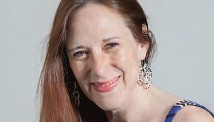
The interest in the 43rd president's career as an artist is intriguing, for canvases often offer views of their creator's psychological state, outside the question of whether a work is merely "good" or not.
In the Bush portraits of cats, dogs, landscapes and still lifes, rendered in a realist-naive style, there's a considerable amount of feeling, even charm. These aren't just animals observed from a distance, there's a vivid sense of personality to the canine or feline sitters. The still lifes also are captivating, but seem to be informed by a sense of unease, or isolation, that makes them effective and memorable as images.
It would be hoped that these works could be sold to benefit an arts group (rather than a political cause), and that they signal a sensitivity and introspection for the presidential artist. The signing of the works 43 on the front seems odd — it disrupts the picture plane. Better to add that to the back of the painting, where it would possess more nuance.
-----------------
Evan Pricco is editor-in-chief of the San Francisco-based Juxtapoz Art and Culture Magazine . He has contributed essays to numerous books, as well as championed public art in talks around the world.
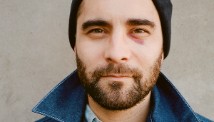
My feeling about George W. Bush's art is that it lacks any sort of conceptual depth or skill. It appears to be the work of someone who is trying to establish himself as a creative, introspective artist, but lacks both the technical chops or even knowledge of painting to make it something more than a hobby that should happen between clearing brush on the ranch or eating breakfast.
Moreover, it is hard to separate man from art in this case. Is there part of me that wishes George would have used such patience and, let's be honest, just one ounce of creativity and depth as president rather than exhibiting a surface-level thinking at that time? Yes. But then again, if his creative thinking and talent led us to a man who deep inside wanted to paint fouth-grade level doggy portraits, well, maybe we got the best of him in office. And yet again, good for him for going through what appears to be a cat period, too.
There is great kitsch art, there is also great merit in creating art for its own sake; I feel like this art is an accident that the world had to see. I don't see much interesting skill to note.
----------------
Brian Goslow is managing editor of artscope magazine , a New England-based magazine that focuses on artists and visual arts exhibitions.
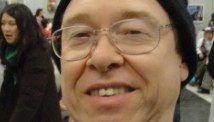
In recent years, most full-time artists, regardless of the quality of their work, have found the prices collectors and everyday people are willing to pay for their work dropping rapidly. At the same time, they watch people scooping up anything with a celebrity's name tagged to it -- whether or not it has any noticeable artistic value -- willingly paying outrageous prices for the experience.
When you're talking about a president, there's already a value placed on anything tied to him, whether or not it's from the time of his administration. Add a legitimately documented signature and the price rises substantially. Because many of President Bush's paintings have been portraits of dogs and cats — which any person with a heart would fall in love with — and carnival artist-like portraits of world leaders, there's an even greater challenge in deciding the value of his work. His paintings do make us smile, and there is great value in that.
The Dallas Contemporary art museum — a likely future host for a Bush exhibition, should their board of directors be thinking bottom line — is in the process of taking in a 40-foot-tall neon Playboy bunny sculpture by Richard Phillips that it will be displaying in spring in the hope of attracting new visitors. In today's art world, especially when it comes to museums and other cultural institutions, that is the bottom line — and it's leaving many people involved in the profession confused as to what future generations will consider art.
I suspect, however, that President Bush isn't spending too much time pondering that question; he's just one of those pure creative types who makes art for the sheer love and enjoyment of it.
---------------
Paddy Johnson is the founding editor of the New-York based art blog Art F City and an art critic for L Magazine . In 2010 and 2013 she was nominated for Best Art Critic in the Rob Pruitt art awards. She lectures on art across the country.
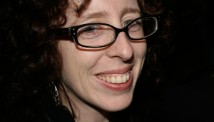
The greatness of George W. Bush's paintings is vastly exaggerated.
New York Magazine art critic Jerry Saltz wrote in February that they border on "visionary." He was describing two boilerplate self-portraits situated in the shower and bathroom that display little by way of imagination or rendering ability. His conclusions are suspect.
Artist and art sleuth Greg Allen drew a similarly glowing conclusion at Gawker that Bush is an "outsider artist" standing apart from history. But it seems his standpoint is partly based on an interest in the artist as the former president of the United States.
So let's clear up what should have been obvious from the get-go: George W. Bush's presidency isn't relevant to determining the merit of his paintings.
This was made particularly obvious when Bush presented talk show host Jay Leno with a painting of Leno. The image was likely drawn from a photograph and lacked any kind of reflection.
In terms of skill, the president is working at roughly a second year art student level. His paintings suffer from extreme localization of color (the background blues and purples, for example, aren't used in the rendering of Leno's jacket, making it appear flat and lifeless). That's a common problem for students at that stage in their learning.
What's more, it's clear that Bush's interest in making art doesn't extend further than realistic representation. That's fine—making a painting that looks like something else requires some skill—but it's not what makes a great artist.
The best artists are those whose imagination and vision inspire viewers. While Bush's career trajectory may do that, his paintings certainly do not.
---------------
Michelle Edelman is founder and CEO of Traffic Creative Management, a creative incubator in New York, and the Traffic Art Space .

It's commendable that George Bush is exploring his inner creative self. If one can go under the premise that not everything that is drawn or painted is art, I would say this is a nice hobby. Regardless, it's more illustration-like than art.
What is interesting is his subject matter—pets and TV personalities. Is this how he is spending his time? On the couch watching Jay Leno and petting his dog? (Pets love you unconditionally. They don't talk back.)
This sounds like a more comforting place for him than in the hot seat. Why is he sharing this with the public? Is he looking for a gallery? Maybe he should talk to the big art dealers who are expert at inflating prices for art with little content.
Follow us on Twitter @CNNOpinion.
Join us on Facebook/CNN Opinion.
The opinions expressed in this commentary are solely those of the writers.







